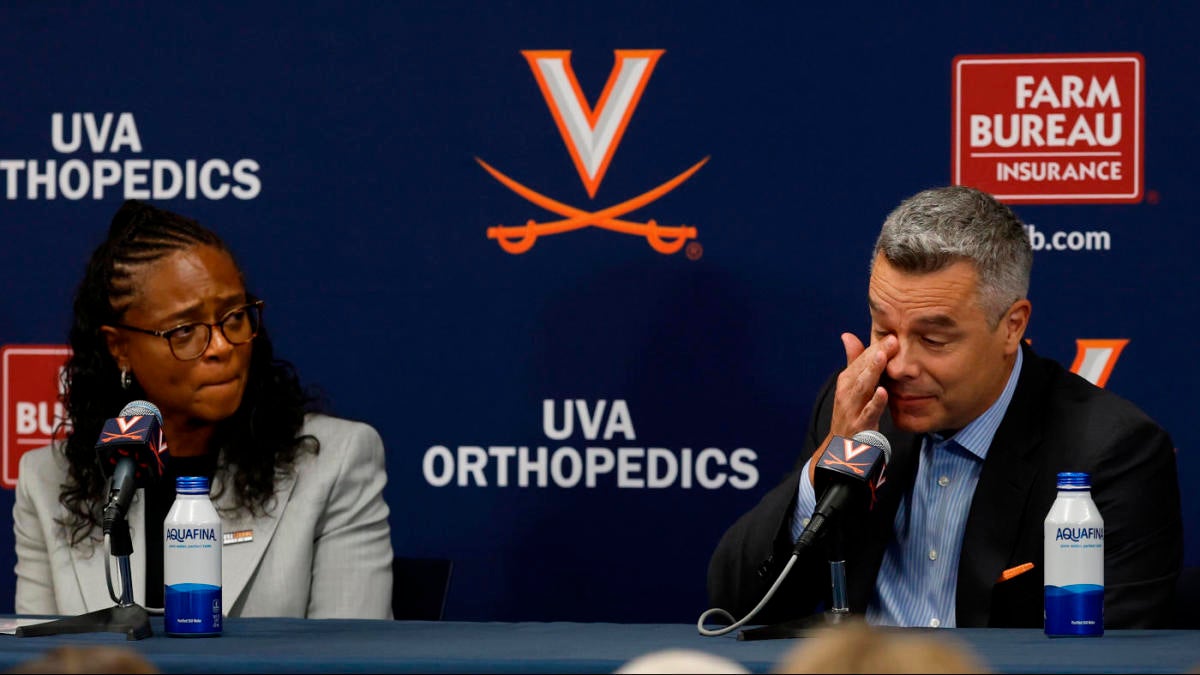The End of an Era: Tony Bennett’s Retirement and Its Implications for College Basketball
A Humble Departure
Tony Bennett is not an individual who craves attention, a fact evident during his retirement announcement at the University of Virginia. His humility, often to the point of personal discomfort, was palpable in a packed press conference where he received resounding applause from the crowd. Athletic Director Carla Williams praised him, highlighting the profound impact he’s had on UVA basketball and the university itself. As Bennett stood there, his demeanor mirrored that of a shy child being showered with birthday wishes—awkward yet appreciative, overwhelmed yet grateful.
The Timing of Retirement
On October 18, Bennett made the surprising decision to step down just 18 days before the 2024-25 season was set to begin. This decision brought his storied career of 433 wins, an NCAA championship in 2019, and success that redefined Virginia basketball into the limelight. As a legend in his field, the timing of his retirement opened up discussions about the current instability surrounding college athletics, a landscape evolving at a pace that leaves many contemplating their own paths.
During his announcement, Bennett shared heartfelt reflections on his journey, noting that “it was time for me to give it back”—an acknowledgment that college basketball has shifted dramatically, leaving many coaches grappling with how to adapt. This sentiment struck at the heart of Bennett’s decision, emphasizing that retirement was not a mere conclusion but a vital reaction to a changing environment.
Navigating Change in College Sports
In a one-on-one interview following his press conference, Bennett opened up about the challenges presented by recent changes in college athletics. "Until there are parameters," he explained, "I know I can’t do it, and that’s the whole deal here." As NIL rules and the transfer portal have radically altered the landscape, Bennett wrestled with the effectiveness of his traditional coaching methods. He pondered whether he could continue to guide young men in a way that felt authentic and aligned with the current demands of the sport.
Bennett’s deep introspection led him to confront an uncomfortable reality—perhaps it was time for him to step aside and allow new leadership, better suited to navigating these tumultuous waters, to take the reins.
From Reluctant Coach to National Champion
The saga of Tony Bennett’s coaching career is rich with unlikely beginnings. Initially resistant to coaching, Bennett’s career trajectory changed when he volunteered as an assistant to his father, Dick Bennett, at the University of Wisconsin. This decision opened the floodgates to a remarkable career that would ultimately lead him to Virginia in 2009—a program that only began to flourish under his stewardship.
His philosophies on basketball, particularly his signature pack-line defense and a slow tempo that often ranked at the bottom of national statistics, countered the prevailing fast-paced trends of modern college basketball. Yet, despite skepticism, this unique approach solidified Virginia’s position as a powerhouse, culminating in tenure marked by sustained success including multiple ACC titles and the long-awaited national championship.
A Legacy of Resilience
Bennett’s journey is defined by stark highs and lows. The 2018 NCAA tournament shocker—Virginia becoming the first No. 1 seed to lose to a No. 16 seed—could have unraveled many coaches. However, Bennett viewed that moment not as an endpoint but as a necessary step in his evolution. His 2019 national championship run was a poignant comeback story, revealing his unwavering belief in resilience and redemption.
Yet, the landscape of college basketball has continually morphed. The challenges presented by the transfer portal and new NIL regulations forced coaches, including Bennett, to adapt. As he reflected on recent departures of legends like Roy Williams and Mike Krzyzewski, the thought that this might be a systemic problem weighed heavily on him.
Balancing Career and Family
Now, Bennett is looking to prioritize family over the demands of coaching. “Now that I’m not in it, I can say this. It’s too much," he admitted, echoing the sentiment of many coaches who have begun to voice their concerns about the unsustainable pressures of modern college coaching. His decision to retire is fueled not only by the current challenges of recruiting and roster management but also by a longing to reconnect with his family—an important aspect of life he feels has been compromised due to the all-consuming nature of the profession.
The profound concern for the mental health of college athletes also surfaced during his discussions, highlighting a demand for more structure and support systems within college sports.
The Transition Ahead for Virginia Basketball
The aftermath of Bennett’s retirement leaves the University of Virginia in a transitional phase. His longtime assistant, Ron Sanchez, has been named interim head coach, stepping into massive shoes while Bennett’s legacy looms large. This transition represents not just a change in leadership but a pivotal moment that calls for an assessment of how the program and college basketball may evolve moving forward.
As practice commenced without Bennett’s guiding presence, the reality began to sink in for players and coaches alike. A tradition built on Bennett’s principles now faces a new era amid uncertainties in the sport. His departure signifies not just a loss of an iconic figure but a critical juncture for Virginia basketball.
Reflections on a Remarkable Career
While Bennett himself contemplates his future, he remains committed to supporting the new regime from afar, taking time away to ensure a smooth transition. His influence will undoubtably persist, rooted in the values he instilled and the standards he set—one that balanced competitiveness with integrity.
Tony Bennett’s retirement, albeit filled with personal reflection and emotion, serves as a larger commentary on the shifting tides within college athletics, leaving the basketball community to ponder what comes next for a game and era he helped define.
